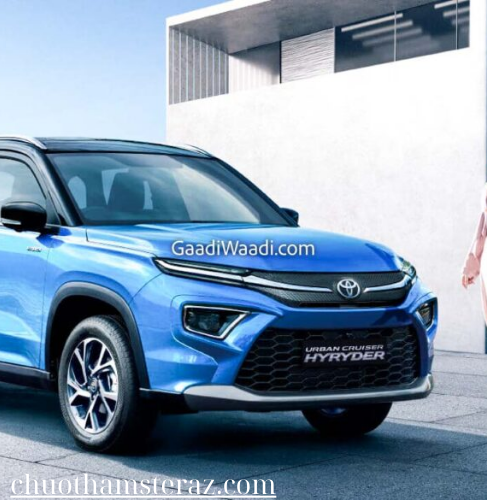Hybrid technology has revolutionized the automotive industry, merging traditional internal combustion engines with electric power to offer more efficient and environmentally friendly driving options. As advancements in hybrid technology continue to evolve, several innovative features and improvements are shaping the future of hybrid vehicles. Here’s a look at the latest innovations in hybrid technology:
1. Advanced Battery Technologies
High-Efficiency Batteries
- Lithium-Ion Improvements: New lithium-ion battery technologies are increasing energy density and reducing weight, enhancing overall performance and efficiency.
- Solid-State Batteries: Emerging solid-state batteries promise higher energy densities, faster charging times, and greater safety compared to traditional lithium-ion batteries.
Fast Charging Capabilities
- Quick Charge Systems: Innovations in fast charging technology are significantly reducing charging times, making it more convenient for users to charge their hybrid vehicles.
2. Enhanced Powertrain Systems
Plug-In Hybrid Electric Vehicles (PHEVs)
- Extended Electric Range: Modern PHEVs offer increased electric-only driving ranges, allowing drivers to rely more on electric power and less on the internal combustion engine.
- Improved Efficiency: Advances in powertrain technology are enhancing the overall efficiency of PHEVs, optimizing the balance between electric and gasoline power.
Dual Motor Systems
- Enhanced Performance: Dual motor systems, featuring both front and rear electric motors, provide better traction and performance, particularly in challenging driving conditions.
- Dynamic Power Distribution: Advanced algorithms manage power distribution between the electric motors and internal combustion engine for optimal performance and efficiency.
3. Intelligent Energy Management
Regenerative Braking Systems
- Efficient Energy Recovery: Innovations in regenerative braking systems are improving the efficiency of energy recovery, capturing more energy during braking and converting it back to electricity for use in the vehicle.
Adaptive Energy Management
- Smart Algorithms: Advanced energy management systems use smart algorithms to optimize energy usage based on driving conditions, route planning, and driver behavior.
4. Integration with Renewable Energy
Solar Panels
- Solar-Assisted Charging: Some hybrid vehicles are incorporating solar panels on the roof to provide supplementary power, extending the electric range and reducing reliance on external charging sources.
Home Integration
- Vehicle-to-Home (V2H) Systems: Innovations in V2H technology allow hybrid vehicles to supply power back to a home, providing energy storage and backup power options.
5. Cutting-Edge Connectivity and Telematics
Advanced Infotainment Systems
- Hybrid-Specific Displays: Modern infotainment systems feature hybrid-specific displays that provide real-time information on energy consumption, battery status, and driving efficiency.
Telematics Integration
- Remote Monitoring: Advanced telematics systems allow drivers to remotely monitor their vehicle’s performance, track battery health, and schedule charging sessions.
6. Lightweight Materials and Design
Composite Materials
- Reduced Vehicle Weight: The use of advanced composite materials and lightweight metals in hybrid vehicle design reduces overall vehicle weight, improving efficiency and performance.
Aerodynamic Enhancements
- Streamlined Designs: Innovations in aerodynamic design are reducing drag and enhancing fuel efficiency, contributing to the overall performance of hybrid vehicles.
7. Improved Driving Modes
Customizable Driving Modes
- Dynamic Mode Selection: Modern hybrids offer customizable driving modes, allowing drivers to choose between electric-only, hybrid, and performance modes based on their preferences and driving conditions.
Eco-Mode Enhancements
- Optimized Efficiency: Enhanced eco-modes optimize power usage and energy recovery, maximizing fuel efficiency and reducing emissions.
8. Future Trends and Prospects
Next-Generation Hybrids
- Hydrogen Hybrids: The development of hydrogen hybrid technology is offering new possibilities for zero-emission driving with the convenience of hybrid systems.
- Autonomous Hybrids: Integration of autonomous driving technologies with hybrid systems is paving the way for future advancements in automated and efficient driving.
Conclusion
The latest advances in hybrid technology are pushing the boundaries of efficiency, performance, and environmental sustainability. From improvements in battery technology and powertrain systems to innovations in energy management and connectivity, hybrid vehicles are becoming more advanced and user-friendly. As technology continues to evolve, hybrid vehicles will play a crucial role in shaping the future of automotive transportation, offering a cleaner and more efficient driving experience.
